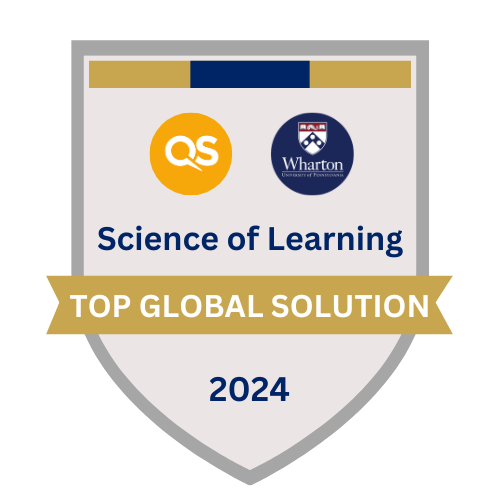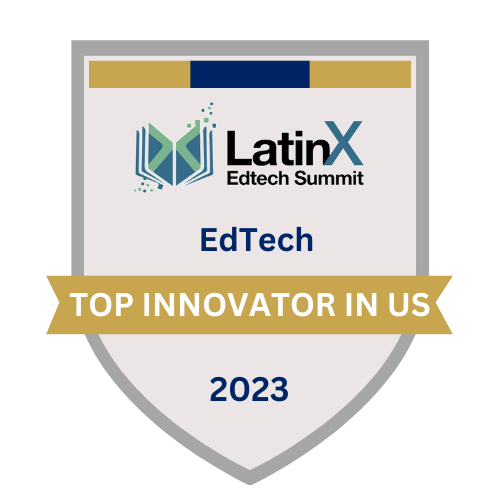Skills for Learning Success
Developing Sophisticated Lifelong Learners
Lifelong learning is widely recognized as essential for both academic success in students and career advancement in adults. However, it’s often viewed as a single skill, when in reality, it involves a complex mix of cognitive, behavioral, and emotional skills. Schooling success rests on these skills that educators and students are rarely exposed to. At COGx, we understand this complexity and apply it to create programs that empower educators to teach effectively and enable students to take charge of their own learning journey.
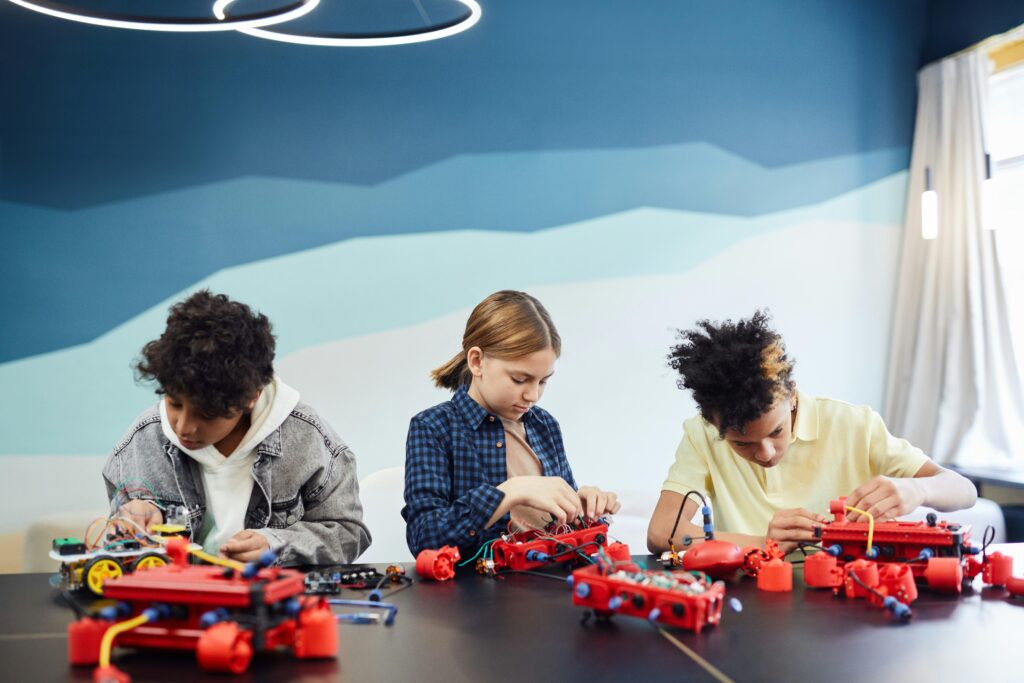
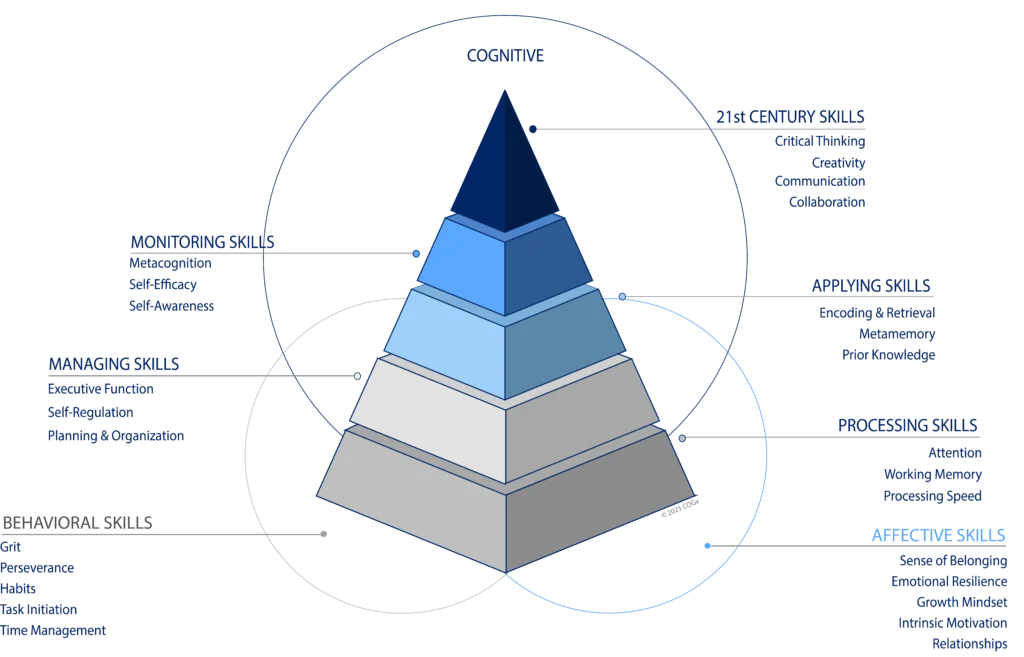
Cognitive Skills Foundational to 21st Century Skills
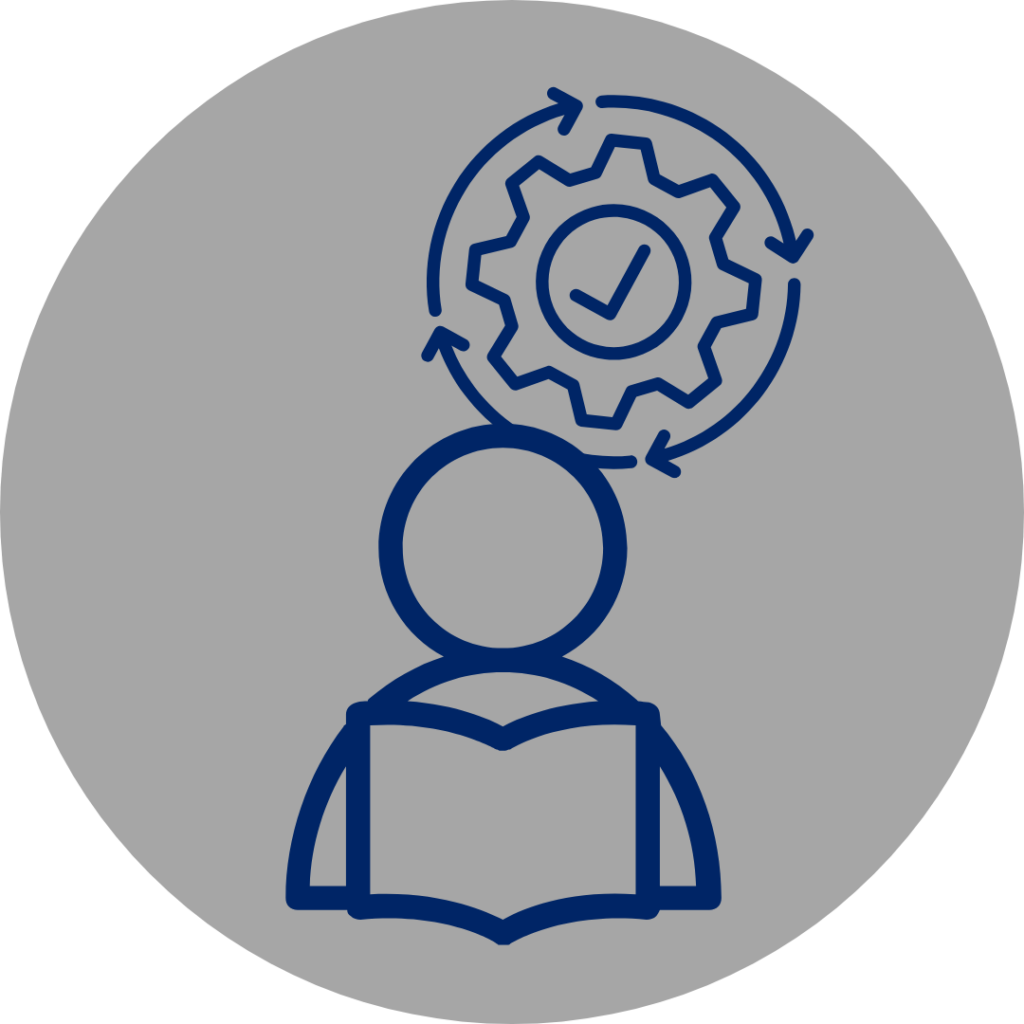
Processing Skills
Effective information processing requires focus to sustain attention, the ability to hold and manipulate incoming data through working memory, and the capacity to integrate information through processing speed.
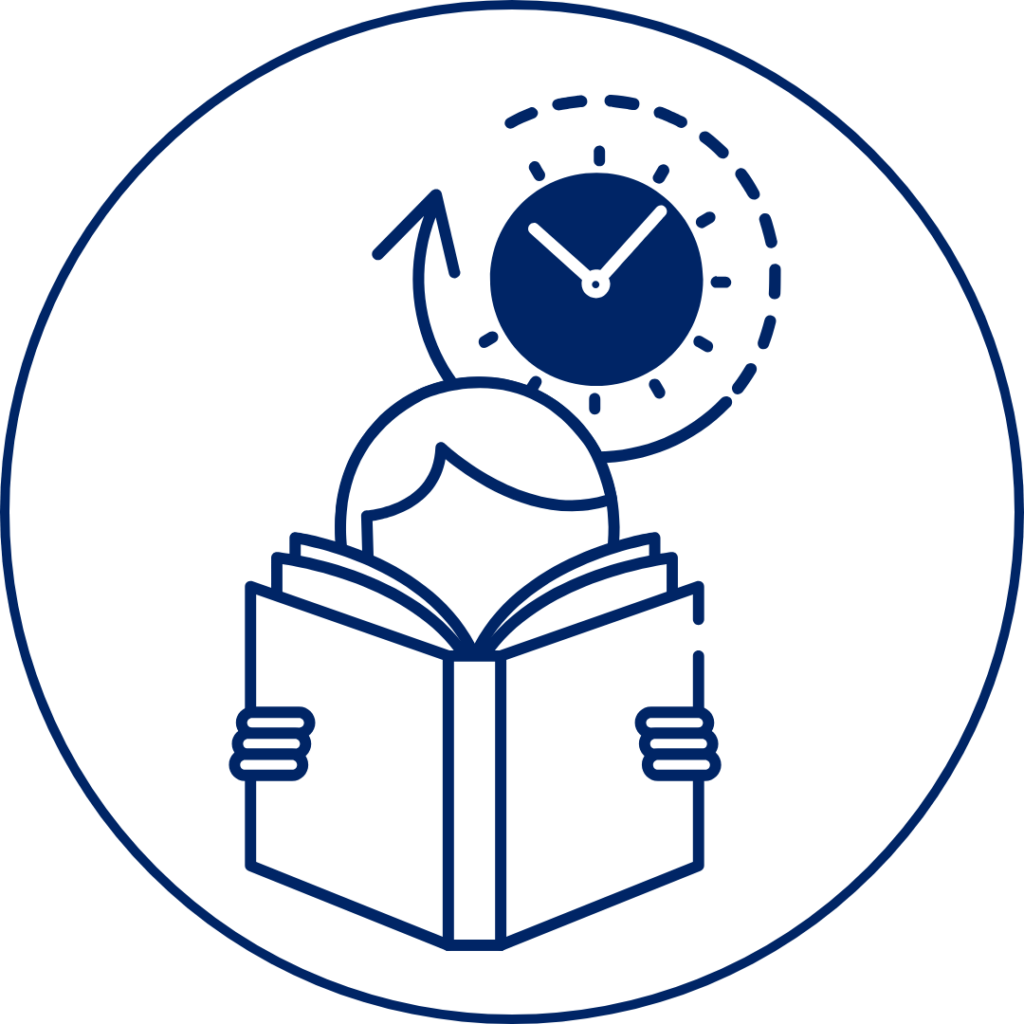
Managing Skills
Managing information effectively includes the ability to self-regulate, organize, manage time, initiate tasks, and other behaviors shared by successful learners. While these are affected by Processing Skills, they can also be improved.
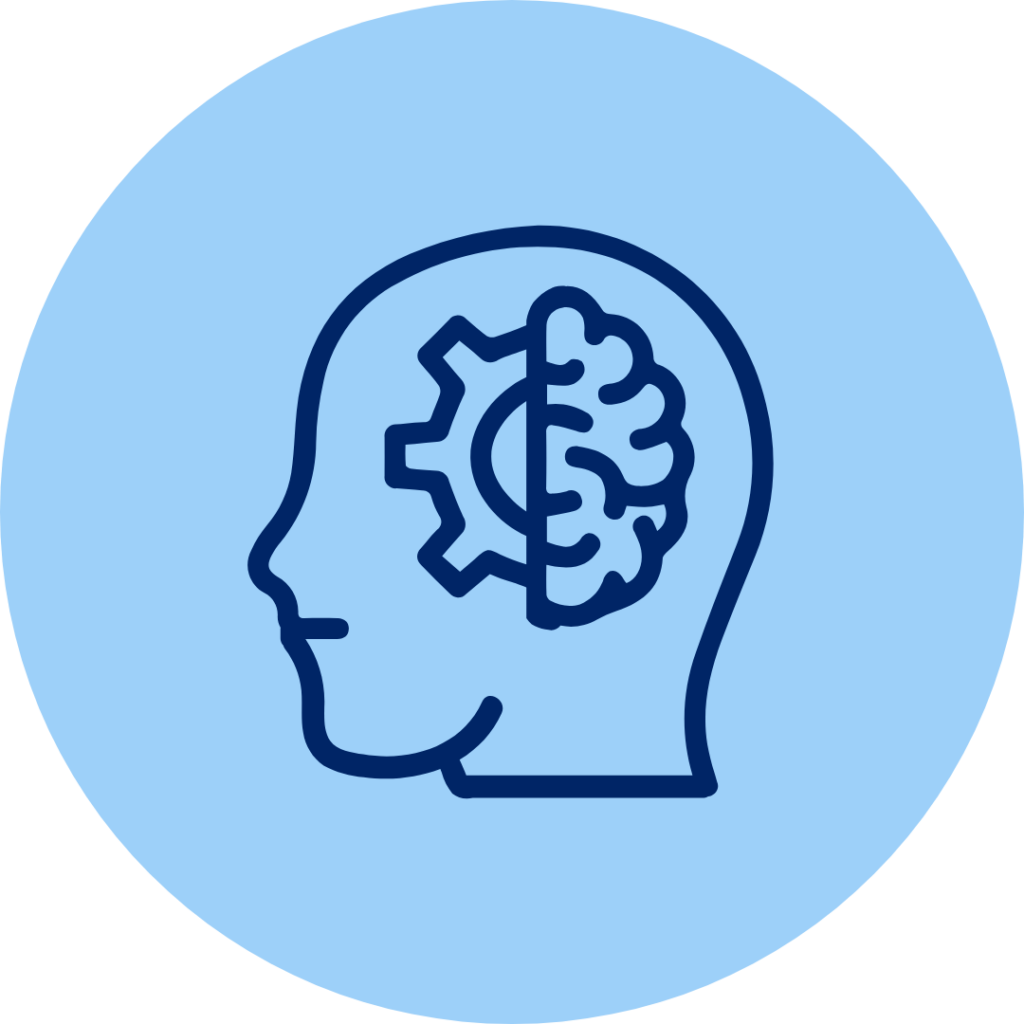
Applying Skills
Applying refers to one’s ability to encode, store and retrieve information effectively. Memory is critical to learning as it serves as the foundation for knowledge. These skills are critical for mastery as well as for 21st Century Skills.
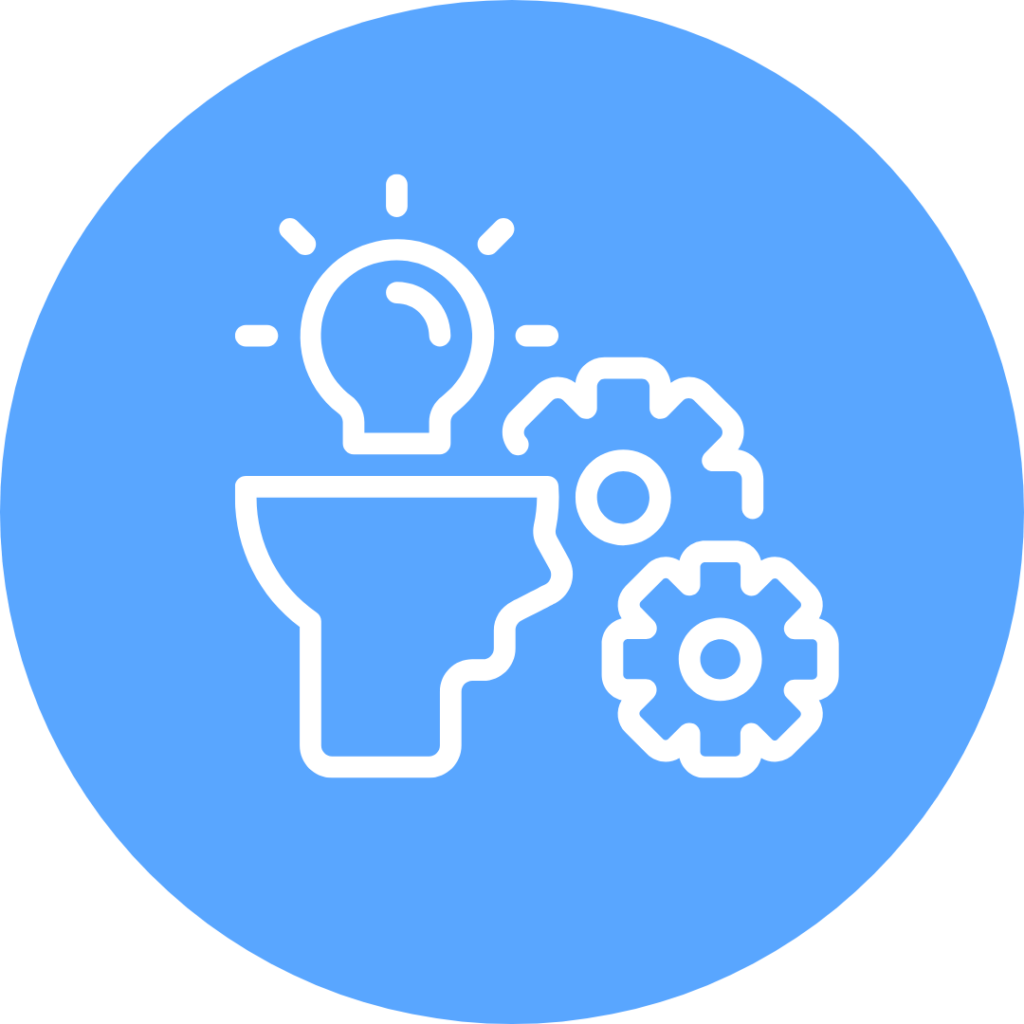
Monitoring Skills
Metacognition plays a significant role in a student’s academic achievement across disciplines and has been identified as a key differentiator between sophisticated, successful learners and those who struggle, especially at learning independently.
COGx Empowers Educators to Teach for Mastery & Students to Become Sophisticated Lifelong Learners
We developed evidence-based programs with the leading experts on human learning. This empowers educators to teach effectively and students to learn efficiently and independently. You select which programs you’d like exclusive access to in a personalized learning platform for your school.
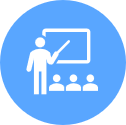
COGx Educator Programs (PD)
Educators are far more effective at teaching what they know if they master how students learn. Yet, this information is rarely included in pre-service training or in-service training. Ignoring this does not set up educators or students to succeed. COGx closes this gap with a robust, flexible and proven program offering that can be customized to meet each organization’s needs.
Our professional development programs provides educators compelling research and insightful application to bolster teaching efficacy and improve your students’ ability to learn.

COGx Student Programs
Research reveals that students rely on the least effective strategies to learn. This causes students to work too hard and/or underperform. An education is incomplete if we fail to teach our students how to learn optimally. COGx closes this gap by democratizing the science of learning for students with various versions of the program for middle school through college-level students.
Our blended program for students helps them master evidence-based techniques and strategies based on the Science of Learning. It teaches students to process information effectively, amass knowledge reliably, and learn deeply.
COGx has been devoted to translating scientific research and evidence-based practice into accessible programs. They are rigorous in their approach and committed to applying research findings and evidence with fidelity. As a result, they are making great strides in changing the status quo in education to one that embraces scientific research on learning.


